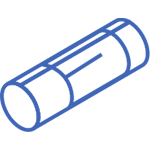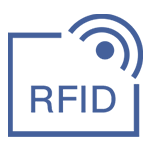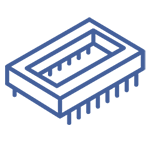

Skyworks Solutions Inc. SKY65050-372LF
Manufacturer No:
SKY65050-372LF
Tiny WHSLManufacturer:
Utmel No:
2293-SKY65050-372LF
Package:
SC-82A, SOT-343
Datasheet:
Description:
IC PHEMT 2.4GHZ 70MA LN SC70-4
Quantity:
Unit Price: $2.298973
Ext Price: $2.30
Delivery:





Payment:











In Stock : 15
Minimum: 1 Multiples: 1
Qty
Unit Price
Ext Price
1
$2.298973
$2.30
10
$2.168842
$21.69
100
$2.046078
$204.61
500
$1.930262
$965.13
1000
$1.821002
$1,821.00
Want a lower wholesale price? Please send RFQ, we will respond immediately.
RFQ Now
Add to RFQ list
You may place an order without registering to Utmel.
We strongly suggest you sign in before purchasing as you can track your order in real time.
For your convenience, we accept multiple payment methods in USD, including PayPal, Credit Card, and wire transfer.
RFQ (Request for Quotations)It is recommended to request for quotations to get the latest prices and inventories about the part.
Our sales will reply to your request by email within 24 hours.
1. You'll receive an order information email in your inbox. (Please remember to check the spam folder if you didn't hear from us).
2. Since inventories and prices may fluctuate to some extent, the sales manager is going to reconfirm the order and let you know if there are any updates.
- TypeParameter
- Factory Lead Time10 Weeks
- Package / Case
refers to the protective housing that encases an electronic component, providing mechanical support, electrical connections, and thermal management.
SC-82A, SOT-343 - Voltage Rated
RATED voltage is the voltage on the nameplate - the "design point" for maximum power throughput and safe thermal operation.
6V - Packaging
Semiconductor package is a carrier / shell used to contain and cover one or more semiconductor components or integrated circuits. The material of the shell can be metal, plastic, glass or ceramic.
Tape & Reel (TR) - Published2008
- JESD-609 Code
The "JESD-609 Code" in electronic components refers to a standardized marking code that indicates the lead-free solder composition and finish of electronic components for compliance with environmental regulations.
e3 - Pbfree Code
The "Pbfree Code" parameter in electronic components refers to the code or marking used to indicate that the component is lead-free. Lead (Pb) is a toxic substance that has been widely used in electronic components for many years, but due to environmental concerns, there has been a shift towards lead-free alternatives. The Pbfree Code helps manufacturers and users easily identify components that do not contain lead, ensuring compliance with regulations and promoting environmentally friendly practices. It is important to pay attention to the Pbfree Code when selecting electronic components to ensure they meet the necessary requirements for lead-free applications.
yes - Part Status
Parts can have many statuses as they progress through the configuration, analysis, review, and approval stages.
Active - Moisture Sensitivity Level (MSL)
Moisture Sensitivity Level (MSL) is a standardized rating that indicates the susceptibility of electronic components, particularly semiconductors, to moisture-induced damage during storage and the soldering process, defining the allowable exposure time to ambient conditions before they require special handling or baking to prevent failures
1 (Unlimited) - Terminal Finish
Terminal Finish refers to the surface treatment applied to the terminals or leads of electronic components to enhance their performance and longevity. It can improve solderability, corrosion resistance, and overall reliability of the connection in electronic assemblies. Common finishes include nickel, gold, and tin, each possessing distinct properties suitable for various applications. The choice of terminal finish can significantly impact the durability and effectiveness of electronic devices.
Tin (Sn) - Max Operating Temperature
The Maximum Operating Temperature is the maximum body temperature at which the thermistor is designed to operate for extended periods of time with acceptable stability of its electrical characteristics.
85°C - Min Operating Temperature
The "Min Operating Temperature" parameter in electronic components refers to the lowest temperature at which the component is designed to operate effectively and reliably. This parameter is crucial for ensuring the proper functioning and longevity of the component, as operating below this temperature may lead to performance issues or even damage. Manufacturers specify the minimum operating temperature to provide guidance to users on the environmental conditions in which the component can safely operate. It is important to adhere to this parameter to prevent malfunctions and ensure the overall reliability of the electronic system.
-40°C - Construction
Construction in electronic components refers to the design and materials used in the manufacturing of the components. It encompasses the physical structure, arrangement, and integration of various parts like substrates, conductors, and insulators. The construction impacts the performance, reliability, and thermal properties of the component, influencing how it interacts with electrical signals and other components in a circuit. Different construction techniques can also affect the size, weight, and cost of the electronic component.
COMPONENT - Current Rating
Current rating is the maximum current that a fuse will carry for an indefinite period without too much deterioration of the fuse element.
55mA - Frequency
In electronic components, the parameter "Frequency" refers to the rate at which a signal oscillates or cycles within a given period of time. It is typically measured in Hertz (Hz) and represents how many times a signal completes a full cycle in one second. Frequency is a crucial aspect in electronic components as it determines the behavior and performance of various devices such as oscillators, filters, and communication systems. Understanding the frequency characteristics of components is essential for designing and analyzing electronic circuits to ensure proper functionality and compatibility with other components in a system.
2.4GHz - Current - Test
Current - Test is a parameter in electronic components that refers to the maximum current that the component can handle during testing without being damaged. This parameter is crucial for determining the operational limits of the component and ensuring its reliability under specified conditions. It is typically specified in the component's datasheet and is important for designers and engineers to consider when designing circuits to prevent overloading the component. Testing the component at or below the specified "Current - Test" value helps ensure its proper functioning and longevity in the intended application.
20mA - Transistor Type
Transistor type refers to the classification of transistors based on their operation and construction. The two primary types are bipolar junction transistors (BJTs) and field-effect transistors (FETs). BJTs use current to control the flow of current, while FETs utilize voltage to control current flow. Each type has its own subtypes, such as NPN and PNP for BJTs, and MOSFETs and JFETs for FETs, impacting their applications and characteristics in electronic circuits.
pHEMT FET - Gain
In electronic components, "Gain" refers to the ratio of the output signal amplitude to the input signal amplitude. It is a measure of the amplification provided by the component, such as a transistor or operational amplifier. Gain is typically expressed in decibels (dB) or as a numerical value, indicating how much the signal is amplified by the component.A higher gain value indicates a greater amplification of the input signal, while a lower gain value indicates less amplification. Gain is an important parameter in designing and analyzing electronic circuits, as it determines the overall performance and functionality of the system. Different components have different gain characteristics, and understanding the gain of a component is crucial for achieving the desired signal processing or amplification in electronic systems.
15.5dB - RF/Microwave Device Type
The parameter "RF/Microwave Device Type" in electronic components refers to the specific type or category of devices designed to operate within the radio frequency (RF) and microwave frequency ranges. These devices are engineered to handle high-frequency signals and are commonly used in various applications such as wireless communication, radar systems, satellite communication, and more. Examples of RF/Microwave device types include amplifiers, filters, mixers, oscillators, antennas, and transceivers. Understanding the RF/Microwave device type is crucial for selecting the appropriate component that meets the requirements of a particular RF system or application.
WIDE BAND MEDIUM POWER - Power - Output
Power Output in electronic components refers to the amount of electrical power that a device can deliver to a load. It is typically measured in watts and indicates the effectiveness of the component in converting electrical energy into usable work or signal. Power Output can vary based on the component's design, operating conditions, and intended application, making it a critical factor in the performance of amplifiers, power supplies, and other electronic devices. Understanding the Power Output helps in selecting appropriate components for specific applications to ensure efficiency and reliability.
10.5dBm - Input Power-Max (CW)
Input Power-Max (CW) is a parameter used to specify the maximum continuous wave power that an electronic component can handle without being damaged. This parameter is crucial in determining the power handling capability of the component under continuous wave operation. It is typically measured in watts and provides important information for designing circuits and systems to ensure that the component operates within its safe power limits. Exceeding the specified Input Power-Max (CW) can lead to overheating, degradation, or even permanent damage to the component.
10dBm - Characteristic Impedance
Characteristic impedance is a fundamental property of transmission lines and refers to the specific impedance that a transmission line presents to an electrical wave propagating along it. It is determined by the physical parameters of the transmission line, including its inductance and capacitance per unit length. When the line is terminated with a load that matches its characteristic impedance, maximum power transfer occurs, minimizing reflections and signal losses. In high-frequency applications, maintaining the characteristic impedance is crucial for signal integrity and performance.
50Ohm - Noise Figure
Noise figure (NF) and noise factor (F) are measures of degradation of the signal-to-noise ratio (SNR), caused by components in a signal chain.
0.4dB - Voltage - Test
Voltage - Test is a parameter used to specify the maximum voltage that an electronic component can withstand during testing without experiencing damage or failure. This parameter is crucial for ensuring the reliability and safety of the component in various operating conditions. It is typically measured in volts and is important for determining the suitability of the component for specific applications where voltage levels may vary. Manufacturers provide this information in datasheets to help engineers and designers select the appropriate components for their circuits based on the voltage requirements. It is essential to adhere to the specified voltage limits to prevent potential damage to the component and ensure proper functionality.
3V - RoHS Status
RoHS means “Restriction of Certain Hazardous Substances” in the “Hazardous Substances Directive” in electrical and electronic equipment.
ROHS3 Compliant



















